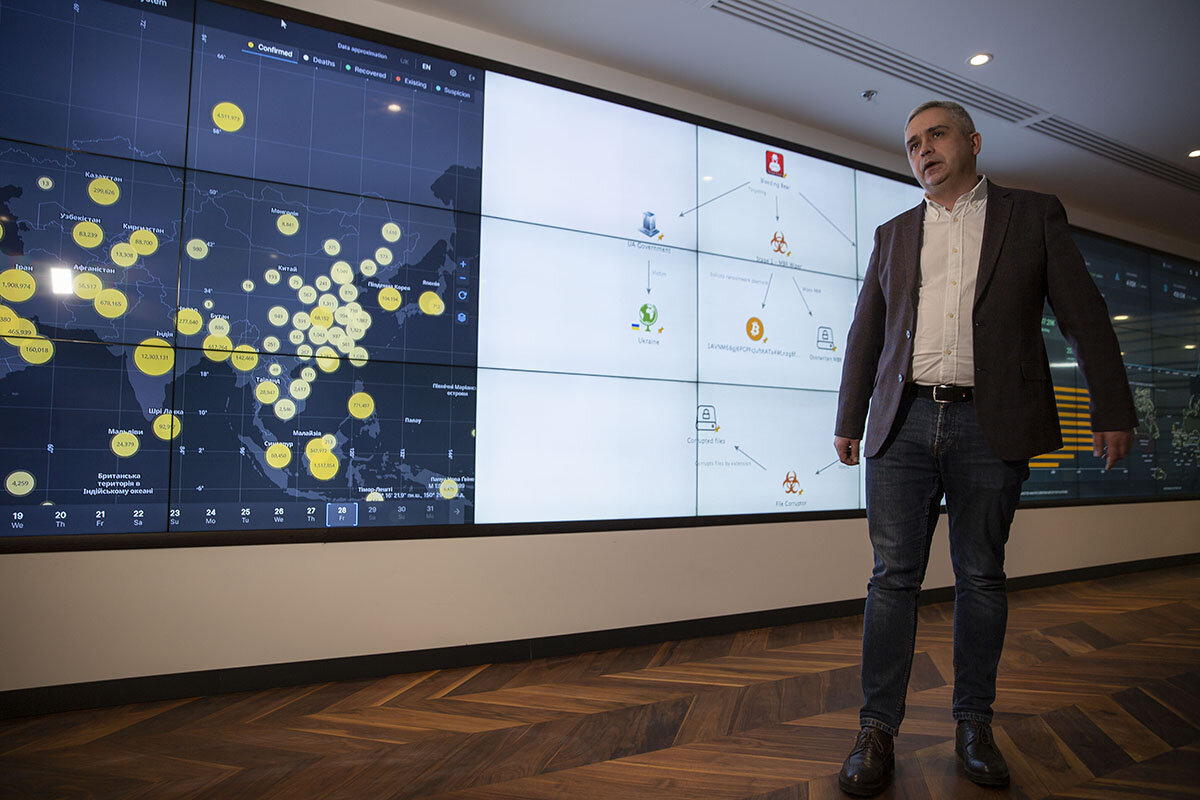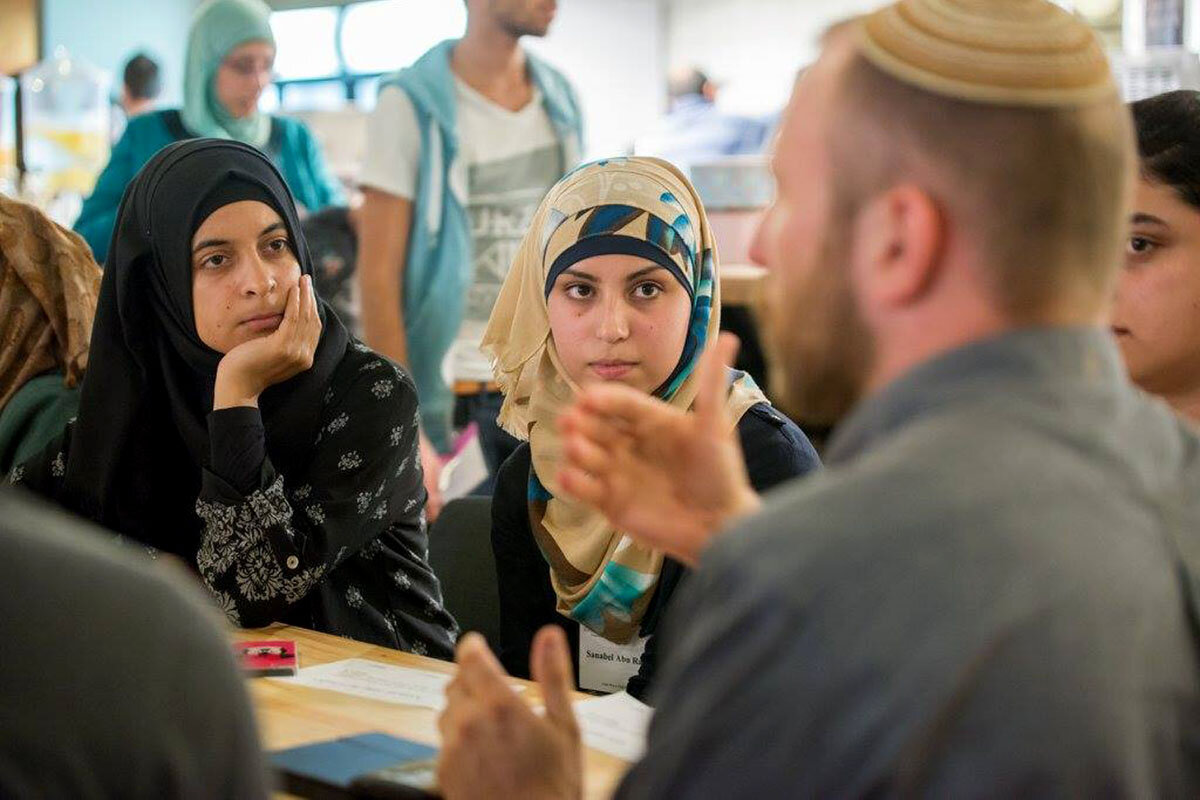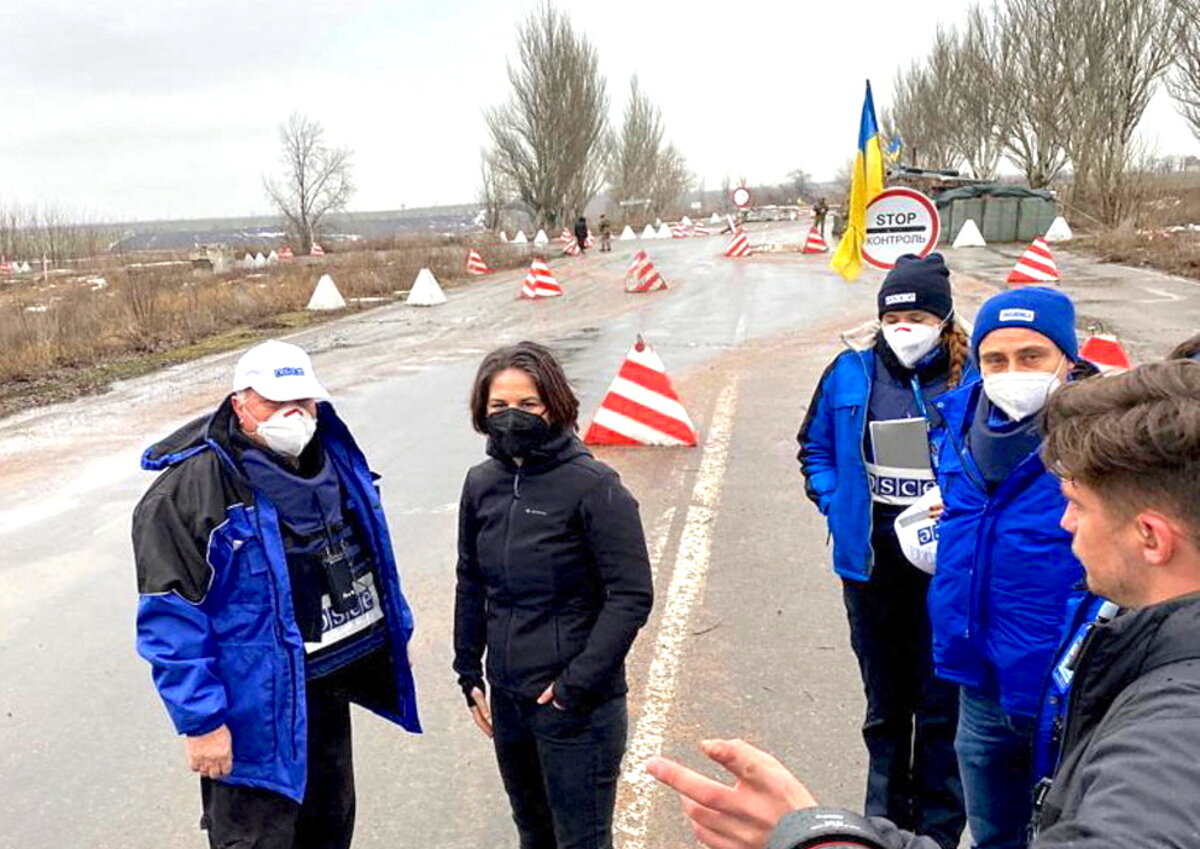Ukraine isn’t dealing just with Russian troops on its borders. It also faces a constant misinformation campaign targeting the hearts and minds of Ukrainians that it is struggling to manage.
Monitor Daily Podcast
- Follow us:
- Apple Podcasts
- Spotify
- RSS Feed
- Download
 Clayton Collins
Clayton Collins
Some Super Bowl fans – especially in Cincinnati – were hoping their team would end a 33-year dry spell on Sunday. Instead, pro football’s Cincinnati Bengals lost a close one to the Los Angeles Rams.
But for viewers looking closely, the Super Bowl venue in Inglewood, California, still showcased a small win – for climate action. While all big stadiums require a lot of pavement for parking, SoFi Stadium’s green urban landscape also includes a 5.5-acre lake that collects rainwater.
And while one promising (and costly) structure won’t shift society to a mindset of hope on climate change mitigation, it might begin to address a kind of anxiety that can be immobilizing.
“Future industrial development is on track to be cleaner than past industrial development,” writes journalist Matthew Yglesias, “even without any new policy changes or technological breakthroughs.”
And a study on “positive tipping points,” unpacked last week in The Guardian, looked at how “small interventions” by “small groups” can build and deliver social change as they gather critical mass and start delivering economies of scale.
“I wanted to show that, if you understand the complexity,” said a professor who worked on the study, “it can open up windows of opportunity to actually change things.”
Consider inroads by electric cars, or plant-based meat alternatives. Consider stadiums with lakes or gardens. The new becomes the norm. As Mr. Yglesias writes, “It’s worth trying to dispel the sense of helplessness.”










